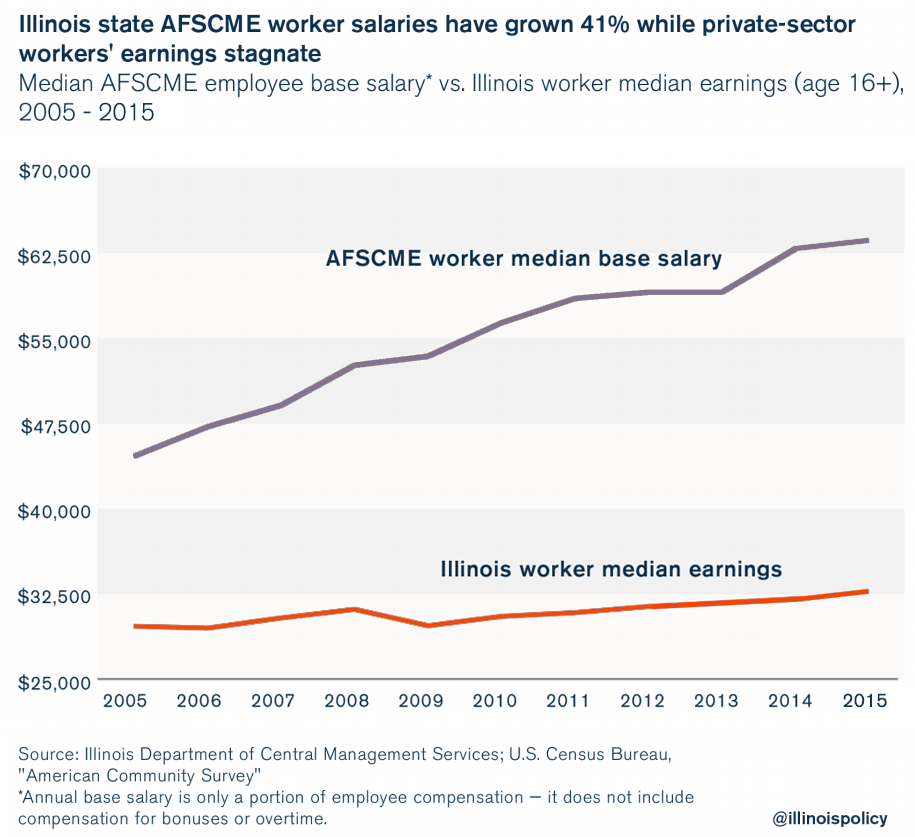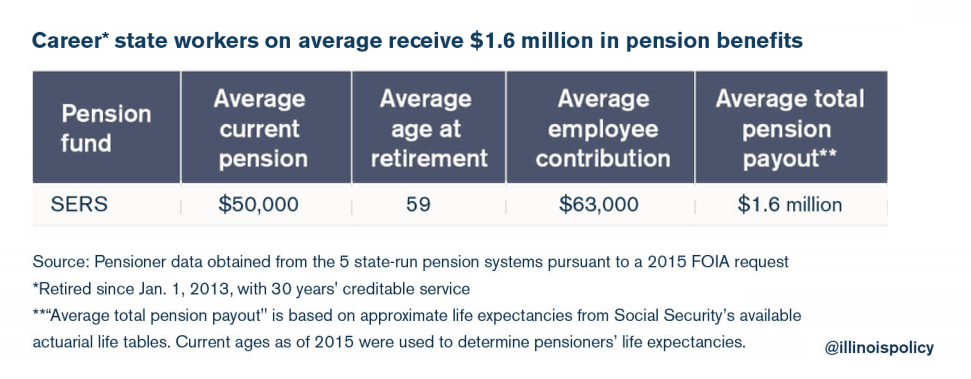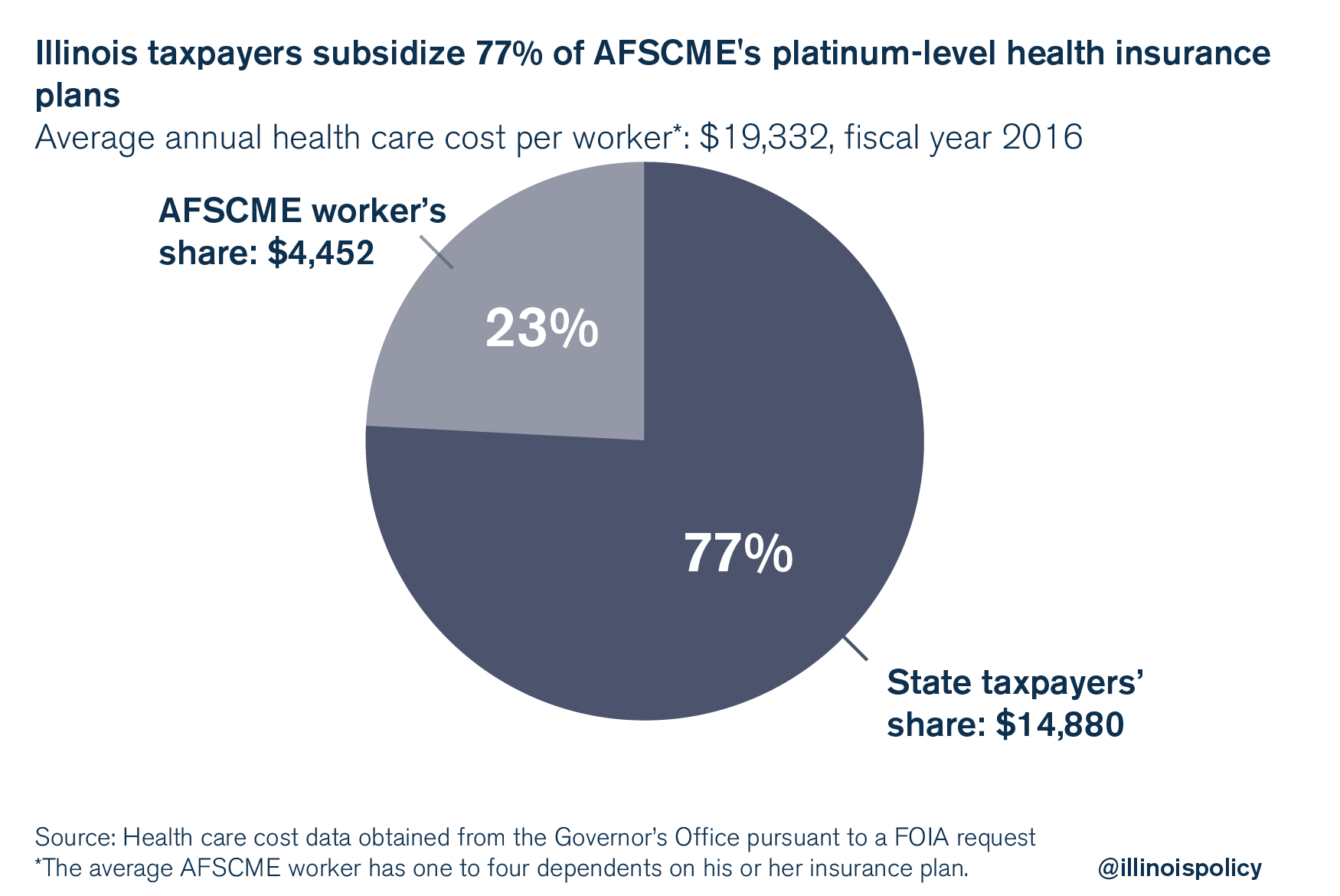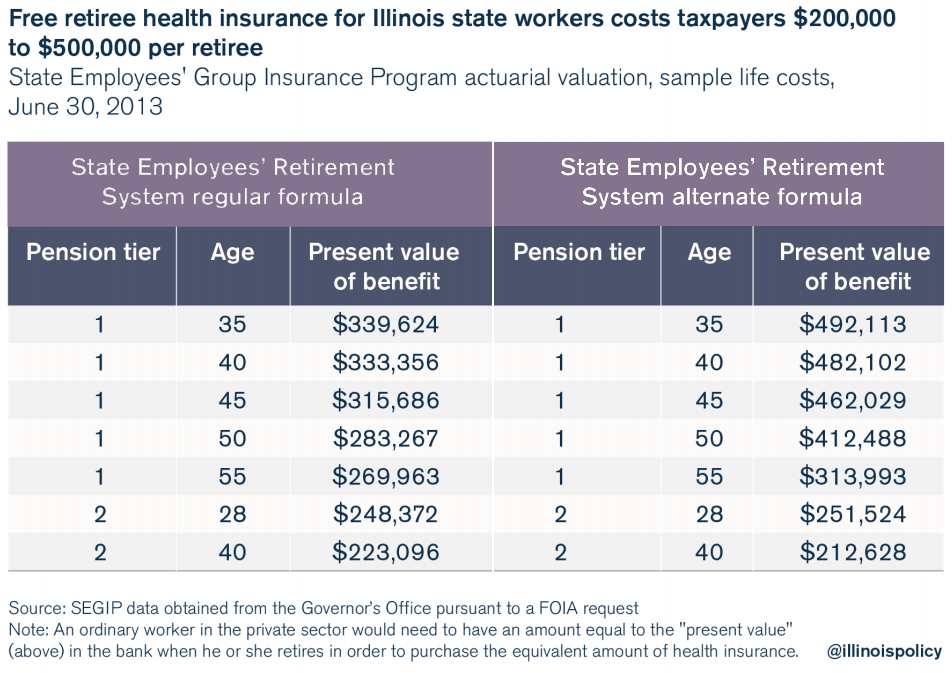Illinois AFSCME workers receive, on average, nearly $110,000 in total compensation
The highest state worker salaries in the nation, overtime pay, generous state pensions, taxpayer-subsidized health care coverage and free retiree health insurance for career workers combine to give the average Illinois AFSCME worker six-figure annual compensation.
Illinois state workers not only enjoy the nation’s highest state worker salaries when adjusted for the cost of living, but they also receive many benefits that are unheard of in the private sector. Those benefits help push up total compensation for the average Illinois state worker represented by the American Federation of State, County and Municipal Employees to levels in excess of $100,000.
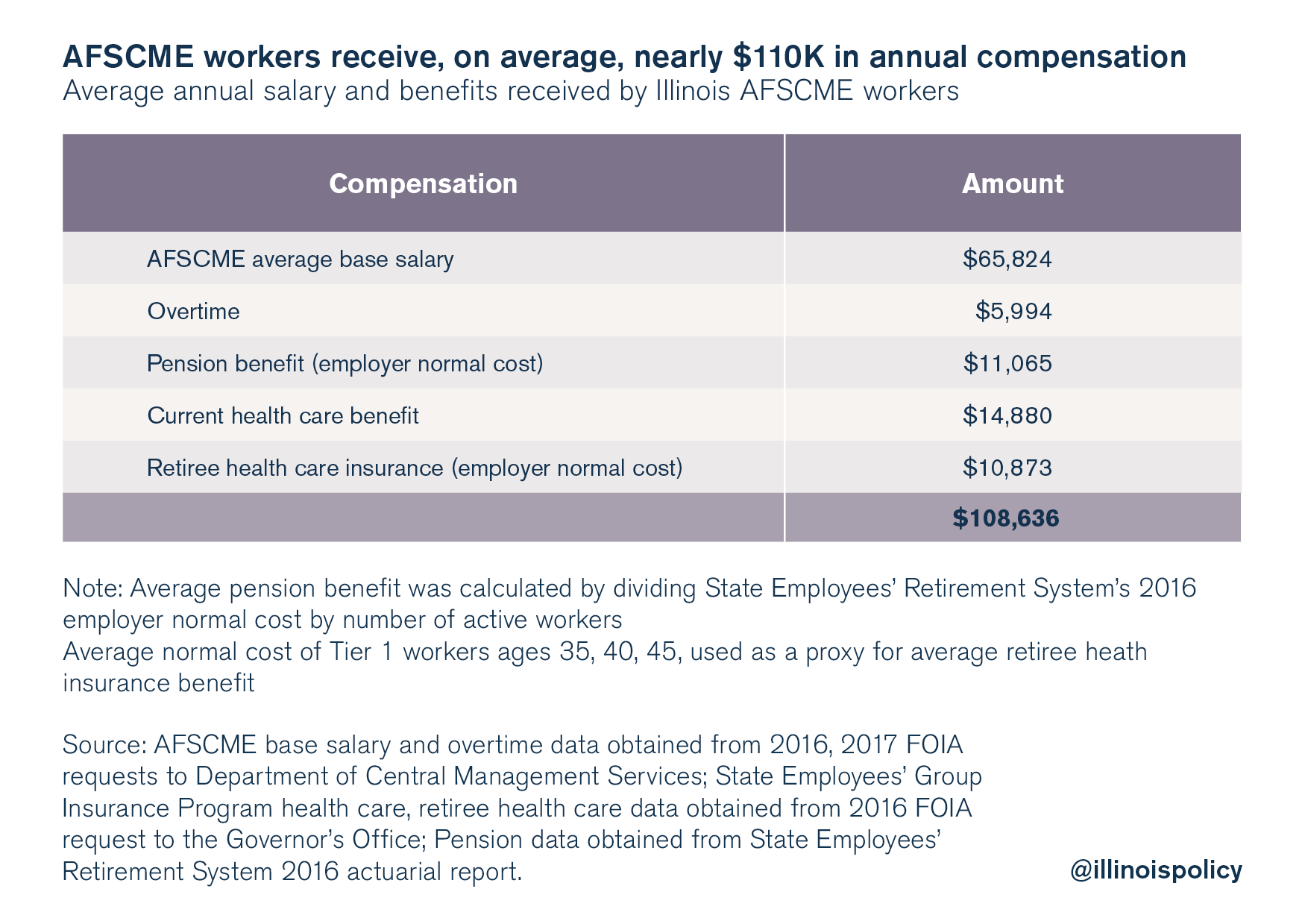
Getting to $110,000
Where does that $110,000 figure come from? In addition to salary, five factors contribute to AFSCME workers’ generous compensation package.
- Base salary: $65,824. The average state AFSCME worker received a base salary of nearly $66,000 in 2015. Illinois’ state workers – 35,000 of whom are represented by AFSCME – have the highest pay of any state workers in the country, when adjusted for the cost of living.
That base salary has grown significantly over the past decade. The average AFSCME median salary (median salary is used for an apples-to-apples comparison with the private sector) increased 41 percent from 2005 to 2015. During that same period, median private sector earnings in Illinois remained virtually flat.
- Overtime pay: $5,994. Those average salaries have been supported by nearly $6,000 in average annual overtime pay, further contributing to the size of workers’ future pension benefits.
- Annual pension benefit: $11,065. The average pension benefit granted to workers – the benefit cost for one additional year of work, or the “normal cost” – exceeded $11,000 in 2015.
Those yearly benefits reflect the fact that a career state worker, someone who works 30 years or more, will receive on average $1.6 million in benefits over the course of his or her retirement. That’s on top of Social Security benefits, which nearly all state workers receive.
- Health care benefit: $14,880. AFSCME workers also receive Cadillac-level health care benefits – platinum benefits at bronze-level prices. Taxpayers subsidize almost $15,000, or 77 percent, of each state worker’s health care costs, which total more than $19,000 per year.
- Retiree health insurance benefits: $10,873. The average worker also received nearly $10,900 in future retiree health insurance State workers receive a 5 percent reduction from the cost of their retiree insurance premiums for each year they work for the state. Under this deal, the state pays for 100 percent of future retiree health insurance premiums for an employee who works 20 years for the state.
Since a vast majority of Illinois state workers retire with 20 or more years of service, Illinois taxpayers pay for the entirety of those workers’ retiree health insurance costs. The total cost of this benefit can be as high as $500,000 in today’s dollars, per employee.
In all, AFSCME total annual pay and benefits are worth just under $110,000 per member.
AFSCME demands more, but taxpayers are tapped out
AFSCME and the state have been fighting over the terms of a new contract for the past two years. Most recently, proceedings have been tied up in the court system.
Rather than accept the terms of the state’s contract offer, AFSCME is now threatening to strike if its demands – which would cost taxpayers $3.1 billion more over a three-year period compared with the state’s proposal – are not met.
AFSCME’s demands include additional state worker salary, health care and pension benefits. Specifically, AFSCME leaders are seeking raises ranging from 11.5 to 29 percent, a 37.5-hour workweek, up to five weeks of vacation and enhanced health care coverage.
It’s time Illinois politicians got their priorities straight and supported the state’s attempt to reform worker pay and benefits.
Most Illinoisans don’t have a six-figure compensation package. And they are already suffering under one of the nation’s worst business climates, a shrinking population, a high unemployment rate, collapsing manufacturing, stagnant incomes and the nation’s highest property taxes.
Illinoisans need reforms, not tax hikes.
The Illinois Policy Institute has laid out the worker pay and other reforms Illinois needs in Budget Solutions 2018. The plan fills Illinois’ budget hole, provides tax relief to struggling homeowners through a comprehensive property tax reform package, implements pension reforms that begin an end to the state’s pension crisis, and enacts major reforms to state spending on Medicaid and state worker health care benefits.


